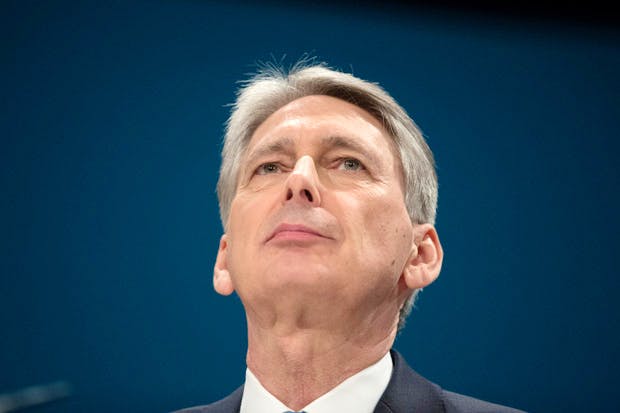There is a role in British public life known as the Elder Statesman – a former cabinet minister who dispenses wisdom to those currently in office based on their own experiences and observations. There are two qualifications for such a position: firstly, that you leave a decent period between leaving office and setting yourself up in the role, so that it is clear you are not simply trying to settle old scores; and secondly that you are prepared to take an objective approach to your own time in office, admitting to mistakes, saying how you would now approach the problems that you faced in office, with the benefit of hindsight. Philip Hammond fails on both grounds.
It is scarcely three weeks since he jumped before he was sacked as chancellor – were he in therapy he would be described as not having yet reached the acceptance stage. Moreover, he has said nothing about his own time in office. One can only presume he cannot yet see what an utter disaster it was in some important ways.
This has not stopped him, however, wading in over Boris Johnson’s Brexit negotiations. In a piece in the Times today, backed up with an interview on the Today programme, he accuses the Prime Minister of ‘wrecking’ efforts to get a deal with the EU by insisting that the Irish backstop be removed from the withdrawal agreement – a condition, he says, that the EU could not possibly accept. Further, he claims that Boris has no mandate even to dilly with the possibility of a no-deal Brexit.
.What Hammond cannot seem to see is his own responsibility for the position we are in – less than three months to go until our rescheduled departure from the EU and still with no sign of how things will turn out, on what basis we will leave.
We are where we are because of the failure of the May administration to take the prospect of no deal seriously. As Michel Barnier recently said, at no point during the negotiations did May ever threaten to walk away from the table. Consequently, Barnier correctly surmised that May was so desperate to get a deal that she would eventually force herself to accept any deal offered to her, however lousy it was for Britain. And a lousy deal is, of course, what we got – potentially trapping us in limbo where we are forced to accept rules from the EU but without say in how those rules are made. It was a deal which Parliament could not accept.
Hammond might not bear direct responsibility for May’s feebleness, but what he did do was block funding for preparations for no deal. In October 2017, when negotiations were still in an early stage, he told the Treasury select committee that he would not make any financial commitments to planning for a no-deal outcome, saying “I don’t believe we should be in the business of making potentially nugatory expenditure until the very last moment where we need to do so”. Late last year he did finally announce he was allocating £2 billion for no-deal preparations, but fellow cabinet ministers were soon complaining that he was refusing to release the money to individual departments.
Hammond’s actions were a strong sign that Britain was not serious about preparing for no deal – enabling the EU to play hardball and ensure the May government’s humiliation at the hands of Barnier and his team.
Hammond’s excuse, that the Government has no mandate for a no-deal outcome, is feeble. No, of course no deal was not on the ballot paper in 2016, and neither was any other form of Brexit. But everyone who voted Brexit in that referendum expected the government to lead negotiations with the EU, and should have been clear to everyone that this would entail threatening to use the right to walk away from negotiations.
By speaking out now, Hammond is further undermining the British position. Only this time the EU and everyone else can see him for what he is: an embittered former minister who needs to embark on a period of reflection before re-entering political debate.







Comments